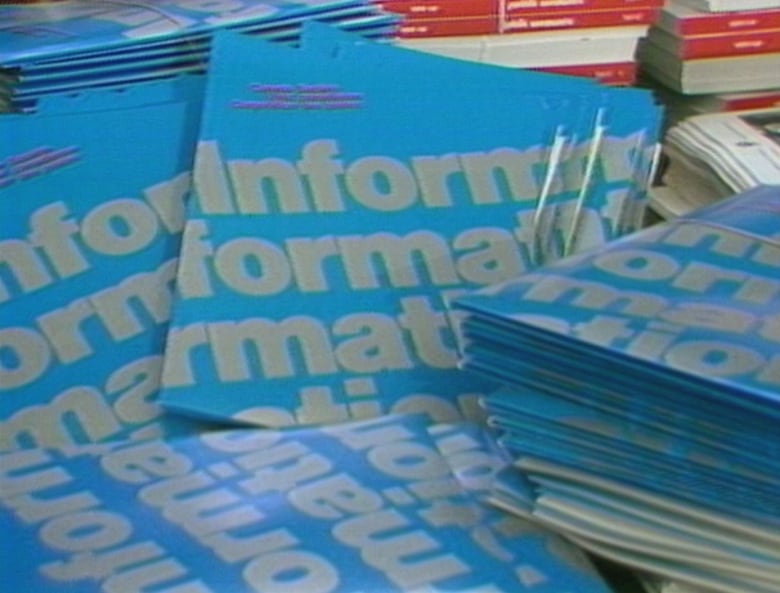When backbenchers felt a 2-cent postal rate hike was too much
Opposition MPs and government backbenchers opposed 1986 hike, but it was approved in the end
Government backbenchers wanted to give their two cents, by not giving Canada Post an extra two cents.
That's the amount Canada Post wanted to raise the price of first-class mail in the fall of 1986, while making cuts to service as well.
If approved, the price of a stamp would move up to 36 cents — up from the 34 cents Canadians were then paying.
The proposed increase had been approved by the federal cabinet, but not by the wider caucus.
Many Tory MPs on the back bench, however, did not approve of it.
'90 solid minutes of complaints'

And during a weekly caucus meeting, they made sure to let Michel Côté, the minister responsible for Canada Post, know exactly how they felt about that two-cent hike.
"One MP after another attacked the post office, calling it expensive and inefficient," the CBC's Mike Duffy reported on The National on Nov. 5, 1986.
"After 90 solid minutes of complaints, Michel Côté finally gave in. He agreed that the rate increase of two cents a letter would not go ahead, but would be referred to a Commons committee for further study."
'No justification' for increase...

Dan McKenzie, a PC member from Winnipeg, was among those Tories who opposed the two-cent stamp hike.
"I can't see any justification for a postal-rate increase until the service improves," he said.
Many opposition members felt the same way about the proposed increase.

"There is no justification for increasing postal rates until we have some clear evidence of an improvement in postal services," said Cyril Keeper, a New Democrat member who also represented a Winnipeg riding.
...but it was going to happen

Duffy concluded his report by noting that both the government and the opposition wanted Canada Post to "break even" as soon as possible.
"There are two ways of doing that — cut spending or raise postal rates," said Duffy.
"The message today was clear: A postal-rate increase is unacceptable to most MPs until there is a significant improvement in performance at the post office."
That last piece of Duffy's analysis didn't seem to age well, as a Commons committee, which was controlled by government members, ended up approving the two-cent hike the following month.
No 'great opposition' to hike?
But the PC government seemed to have its messaging ready for that moment.
"I don't think there ever was a great opposition to two cents increase, or whatever the increase may be from time to time," said Felix Holtmann, a PC member who chaired the committee.
He suggested the objection to the price hike was actually rooted in concerns about the planned changes in service.
A follow-up report on The National, as seen above, delved into other problems the post office was facing in those days — including issues related to the installation and operation of so-called "super mailboxes" in communities across Canada.


